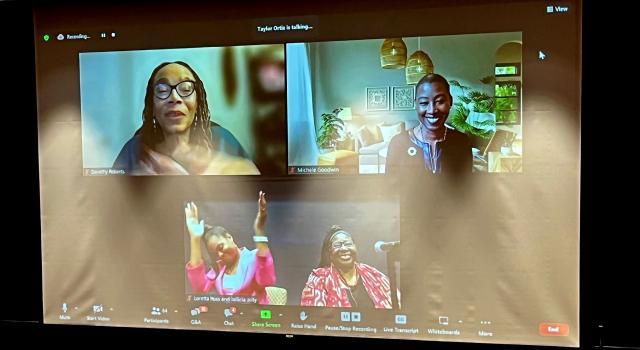Hampshire College Amends Investment Policy to Exclude Prison Industry

Hampshire College amended the language of its institutional investment policy this month to include a list of specific examples of industries not favored for investing. These include businesses that operate private prisons, private security, and surveillance companies; weapons manufacturers; and fossil fuels. The Board also strengthened the language of its “Environmental, Social and Governance Investing Policy“ to disfavor companies that "practice oppression or discrimination based on race, gender identity, ethnic origin, sexual orientation, or disability, or promote or profit therefrom." The amendment was announced by Beth Ward, Secretary of the College on behalf of the Board of Trustees, and published at https://www.hampshire.edu/offices/hampshire-college-investment-policy.
The College was led to consider these issues after growing concerns were raised by a group of its students united as Decolonize Media Collective (DMC) who, as detailed on its Facebook page, “worked to ensure Hampshire College does not financially support the mass genocide, in the form of the prison system, against Black and Brown people in the United States.” DMC urged Hampshire College to amend its investment policy to align with “Hampshire’s anti-racist mission.” On Thursday, November 12, Board Chair Gaye Hill and several other Hampshire Trustees met with representatives of DMC, were supportive of the students’ concerns, and agreed to endorse the amendment to the full Board. The Board’s vote the following day was unanimous. Following the announcement of the amendment, DMC reiterated the urgency of this action and thanked the College for amending the policy.
Hampshire College in recent years has worked to become a national leader in affirmative, socially responsible investment management. In April, 2014, Hampshire College and Second Nature convened a group of high-level national stakeholders to explore aligning higher education and foundation endowment investment portfolios with their institutional mission and environmental, social, and governance (ESG) goals, at a conference in Cambridge, Mass. Leaders from nearly 100 organizations gathered at the conference to discuss strategies to reduce risk and increase returns while aligning endowment portfolio investing with organizational mission. The conference resulted in the formation of the Intentional Endowments Network.
Since December, 2011, Hampshire College has maintained an Environmental, Social, and Governance Investing Policy to manage its investments using positive screens. The policy is designed for the College to choose investments based on their positive attributes rather than divesting from those which do not have those attributes. Hampshire believes organizations have a responsibility to invest in line with their values.
Hampshire College and its Board intend to manage its investments with the greatest possible transparency, and have begun providing the campus with quarterly reports on holdings and explicit review of holdings relative to the list of disfavored industries. Hampshire’s endowment is not a large one. As a result, the College invests principally through commingled funds, so investment choices are made at the manager level, as opposed to individual securities. Hampshire hires socially responsible investment managers who have similar philosophies and who will align with its investment policy. Hampshire has taken a number of affirmative steps to decrease its exposure to conflicts against its policy, and is actively engaged in looking at ways to further reduce its exposure to conflicts against its policy.
These efforts honor a long tradition at Hampshire. Hampshire College was the first college to divest from South Africa when its Board of Trustees voted in 1977, in response to student concerns, to divest from companies either trading with South Africa or doing business in South Africa.



